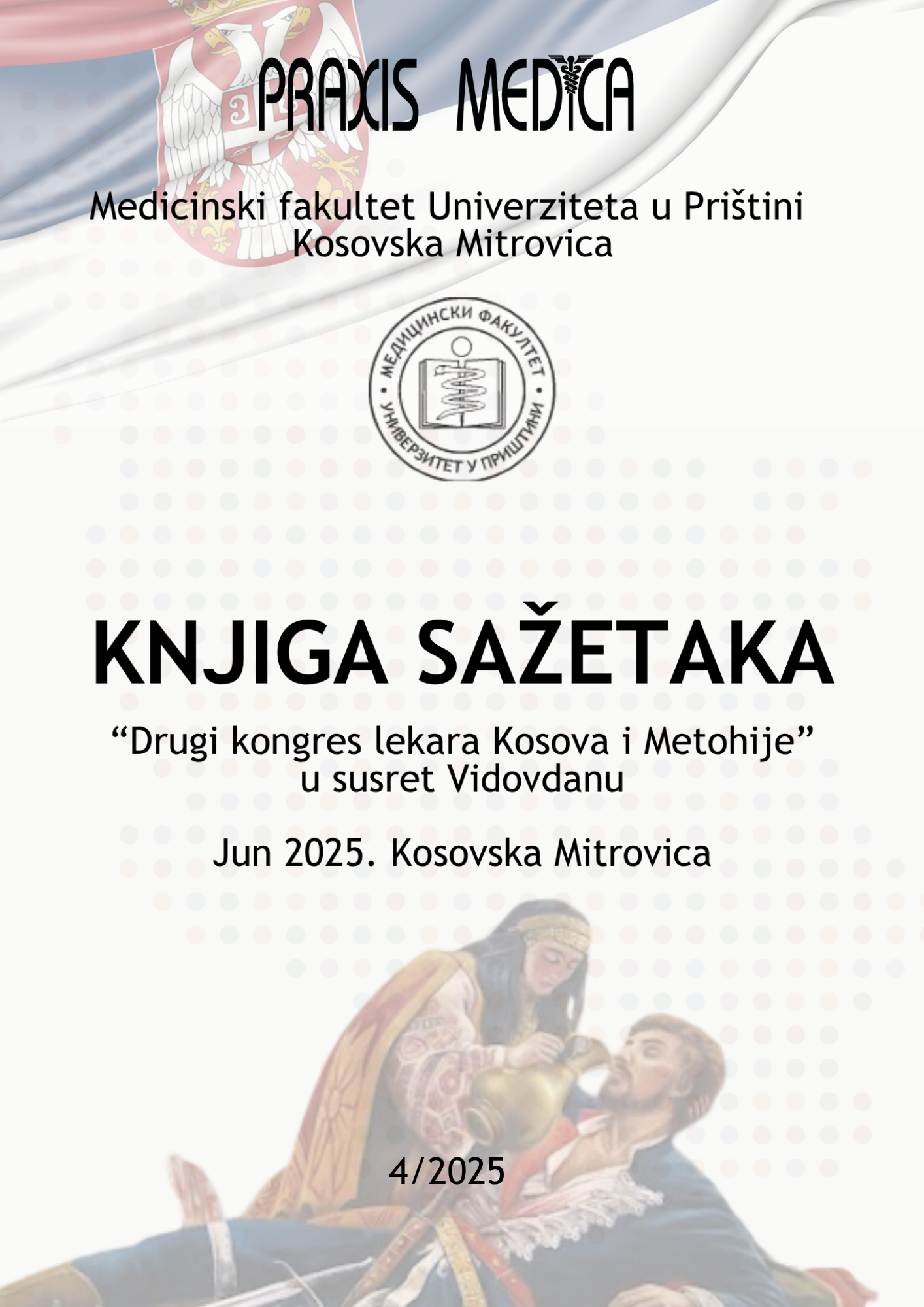
More articles from Volume 31, Issue 1, 2003
EFFECTS OF GLUCAGON ON HEMODINAMIC VARIABLES IN CONDITIONS ON BLOCADE BETA ADRENORECEPTORS
IMPORTANCE OF AFP AND CEA DETERMINATION IN EXPERIMENTALY INDUCED GLIOMA
ANTIPYRETICAL EFFECT OF PARSLEY EXTRACTS (Petroselinum crispum L.) AT MICE
NEUROLOGICAL DEVELOPMENT OF HIGH-RISK NEWBORN INFANTS IN THE FIRST THREE YEARS OF LIFE
ESSENTIAL CHARACTERISTICS OF REPEATED MYOCARDIAL INFARCTION
Citations

0
THE INFLUENCE OF FATIGUE ON THE SPEED AND PRECISENESS OF REACTION THE POPULATIONS OF RAILROAD EMPLOYEES
Railway and Transportation Health Care Institute , Novi Sad , Serbia
Laboratory of Neurophysiology Medical Faculty , Novi Sad , Serbia
Laboratory of Neurophysiology Medical Faculty , Novi Sad , Serbia
Laboratory of Neurophysiology Medical Faculty , Novi Sad , Serbia
Institute of Physiology, Faculty of Medicine, University of Priština - Kosovska Mitrovica , Mitrovica , Kosovo
Published: 01.01.2003.
Volume 31, Issue 1 (2003)
pp. 31-36;
Abstract
In this research it was examined how fatigue in the working process affected the speed of reaction on a complicated
stimulus, and also on the frequency of inadequate reactions. The investigation was carried out by means method of combine
reaction time (CRT). CRT is the shortest time that passes from the moment when a person is affected by a complicated stimulus until the moment when the person responds to the stimulus, by making adequate and complicated reaction. CRTwas registrated in working population of railroad employees who were divided in two groups:group of locomotive drivers (n= 44) and group of a railroad employees (n=25). In the group of locomotive drivers it was taken into the consideration whether the type of locomotive was electrical or diesel power. In both groups, CRT was registrated in two phases of working process; before and after daily work. Results showed that in both examined groups CRT got significantly extended after the
working process. Duration of CRT was longer before and after working process in the group of electrical power locomotive
drivers compared to diesel power locomotive drivers. Fatigue did not affect significantly on the frequency of incorrect answers
Keywords
References
Citation
Copyright

This work is licensed under a Creative Commons Attribution-NonCommercial-ShareAlike 4.0 International License.
Article metrics
The statements, opinions and data contained in the journal are solely those of the individual authors and contributors and not of the publisher and the editor(s). We stay neutral with regard to jurisdictional claims in published maps and institutional affiliations.






